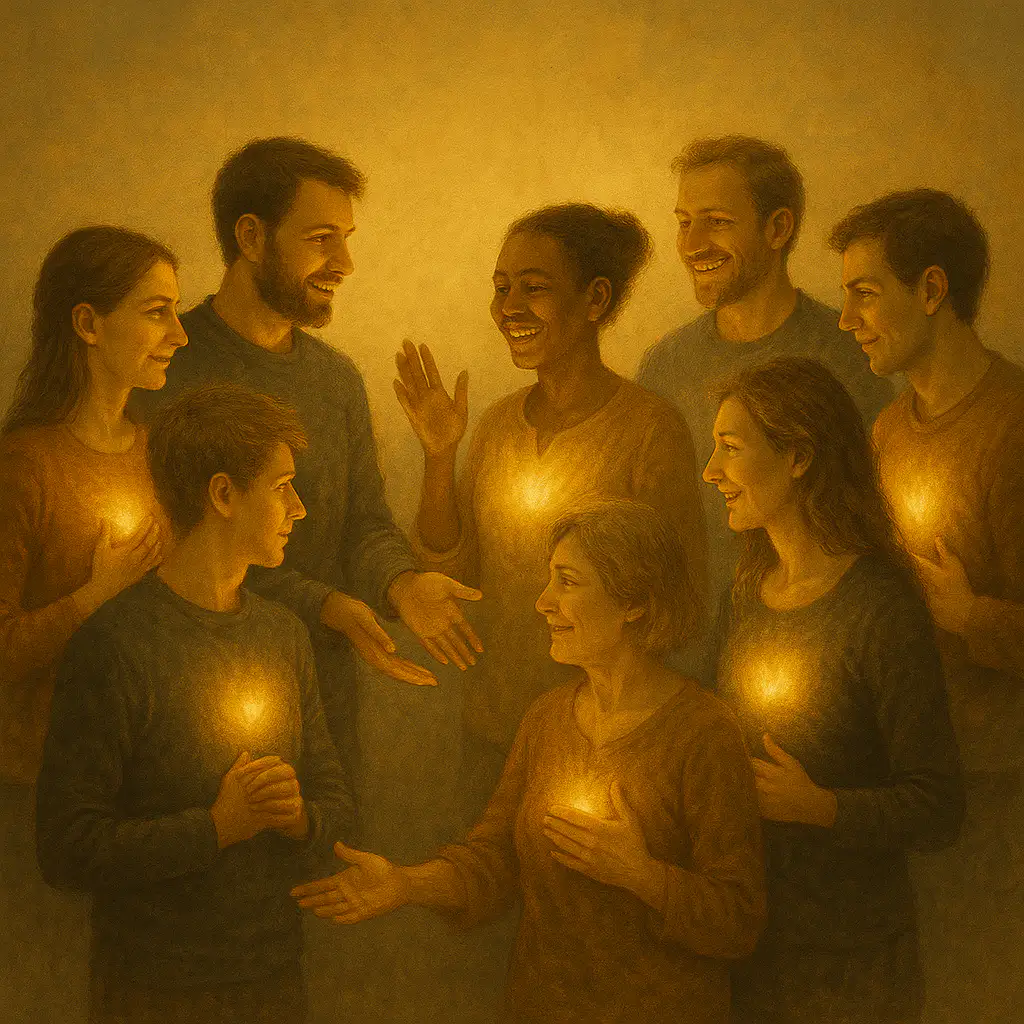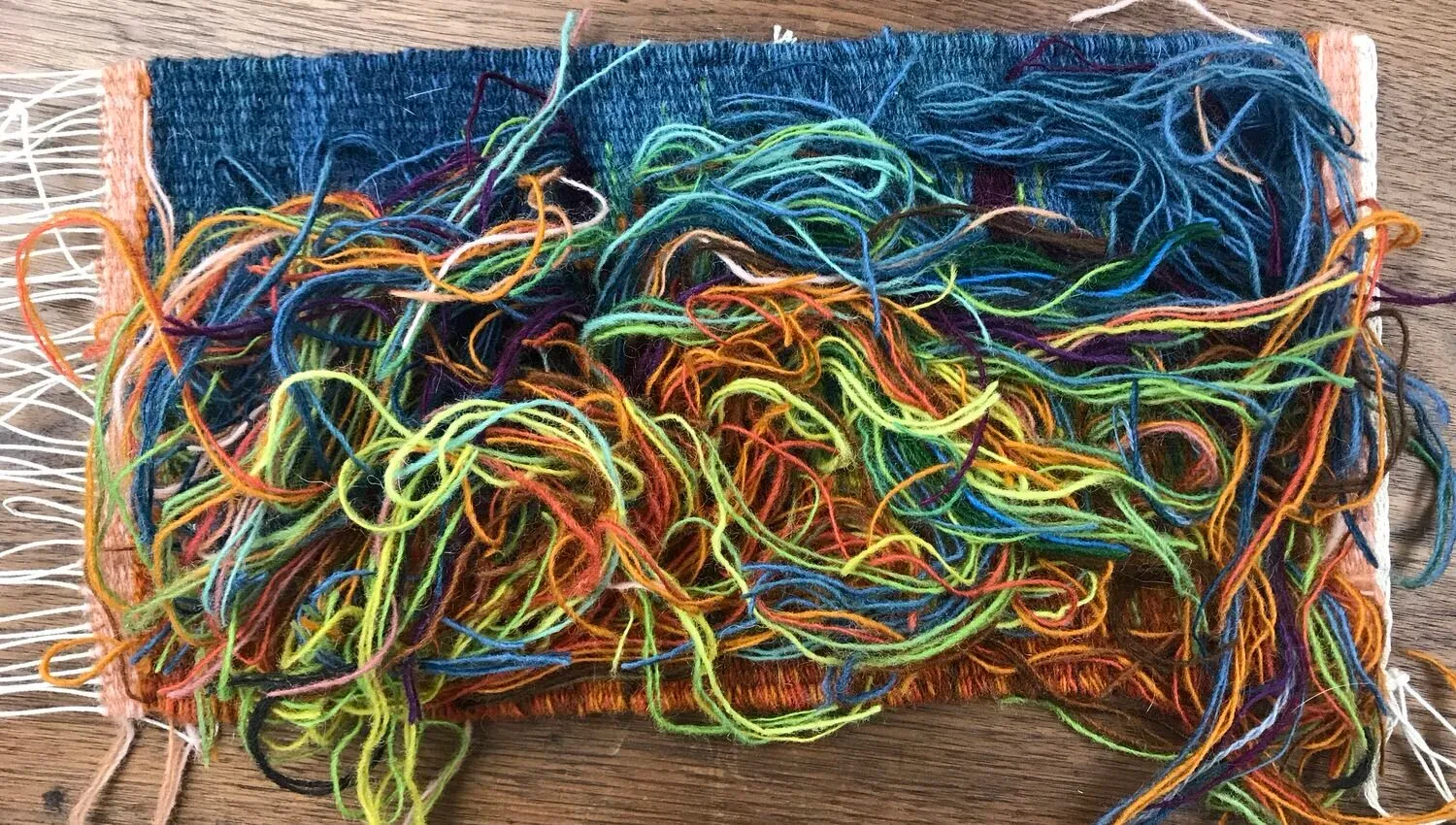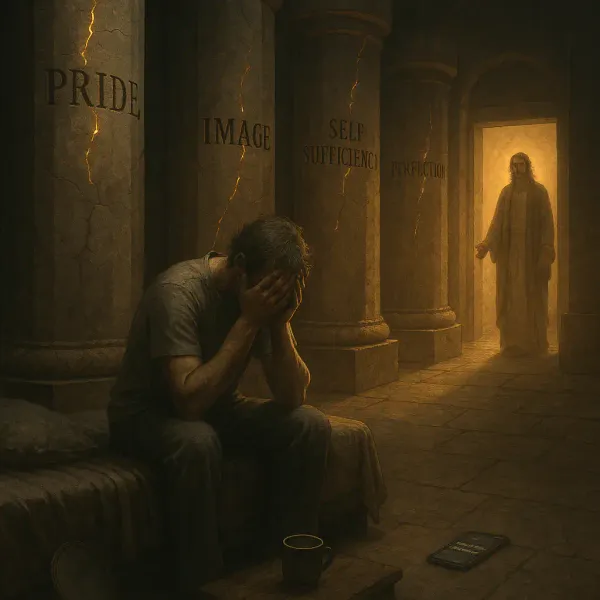Becoming Together (Part 5 in the Changing Minds Series)
You were never meant to follow Jesus alone. But the kind of together we're speaking of isn't casual proximity—it's the deliberate weaving of lives that costs you everything. This shared pursuit requires patience, humility, and willingness to be shaped by others.

The Journey We Cannot Walk Alone
The elders's wife stopped coming to church three months ago. No one talks about it.
Perhaps you've felt it too — that quiet certainty that you could manage your faith better without the mess of other people's opinions, schedules, and expectations. But what if that very mess is precisely what we need?
What if that impulse towards solitude misreads the map entirely? Some journeys you take alone. Others can only be walked with others, because the terrain is too rough, the dangers too well hidden, and the goal too glorious to reach in isolation.
The path behind us has been winding — through moments when certainty cracked, to the tilt of unseen hands, to the quiet erosion of knowing, to the Shepherd’s voice in the noise. Each turn has pulled us closer to a truth that both comforts and confronts: you were never meant to follow Jesus alone.
The kind of together we’re speaking of here isn’t casual proximity or occasional encouragement. It’s the deliberate weaving of lives into a shared pursuit of Christ’s will — a pursuit that requires patience, humility, and the willingness to be shaped by others even when it costs you.
I’ve seen it in the Sunday night gathering, when someone risked telling the truth about their doubt and another quietly slid a hand onto their shoulder. Not to fix, not to preach — just to hold.
This is not just about preserving faith in a “wicked and perverse generation.” It is about becoming the kind of people who can embody Christ’s life in their generation — whose very togetherness is a witness, a resistance to the forces that fragment, deceive, and isolate.
"By this all people will know that you are My disciples—if you have love for one another."
— John 13:35 (APMC)
The urgency is real. The call is not new. The question now is:
What would it take for us to live into it?
The Messy, Necessary Local Body
The local body is a messy human gathering — by God’s design. It is where Jesus is building His church, even when it doesn’t look like we think it should. Much of what we commonly perceive as “church” is not: it is institutionalism, ambition, human wisdom. The headlines tell of distortions, abuse, and blatant departures from the apostolic writings.
And yet, despite these, the Holy Spirit is still working His plan in the hearts of men. Jesus is still the Head. He is building His church, and the gates of hell will not prevail.
What we see is often only the messy, knotty back of the tapestry. What He sees — and what He is weaving — is the pattern of the Bride made ready.
Jesus and the apostles saw this too. They spoke not to ideal congregations but to real ones, riddled with disputes, misunderstandings, and failures. And yet, they held out the vision:
“Speaking the truth in love, we are to grow up in every way into him who is the head, into Christ… when each part is working properly, makes the body grow so that it builds itself up in love”
— Ephesians 4:15–16
Abraham believed God for an innumerable family, not just a personal blessing. Paul poured himself out for churches that were flawed, even fractious — because his faith was in Christ’s headship, not in human perfection.
To belong here is to trust that Jesus is still weaving His tapestry, even when all we see is the knotted, tangled, messy underside.
Practices of Becoming Together
We don’t drift into this kind of shared life. Everything in the age — and in our own hearts — pulls toward convenience, self-curation, and keeping our options open. Becoming together requires choices that feel, at first, like swimming upstream.
These aren’t techniques. They’re postures. And they are costly enough that you will be tempted to abandon them. But they are also the places where the Spirit does His most patient work.
- Stay when it’s awkward. Resist the impulse to disappear when conflict, boredom, or disappointment sets in. Unity isn’t built in highlight reels — it’s forged in the quiet work of showing up again and again.
- Let yourself be known. Share the unpolished parts of your story. The body can’t bear your burdens if it doesn’t know you have them.
- Hold the plumb line together. Keep Scripture central. Let it correct you, and invite others to weigh your understanding. This is humility in action.
- Practice mutual honour. Speak well of others, especially when they’re not present. In a culture addicted to critique, honour is a quiet rebellion against the darkness that thrives on division.
- Give and receive correction. Not to win an argument, but to help one another stay aligned with the Head. Done in love, this is an act of trust, not control.
- Make room for the slow work. Some transformations take years. The Spirit isn’t hurried, and neither should we be.
The pattern is simple enough to name, but living it will undo you — in the best possible way. It has me.
The Slow, Shared Work
We began with cracks — the shudder that comes when certainty gives way. Then we saw the unseen weights on the scales, the quiet forces shaping what we think is 'ours'. We named the risk: that in chasing speed and reach, we lose the slow, embodied knowing by which truth takes root. We heard the call to discernment — to train our ear for the Shepherd’s voice in a world thick with counterfeits.
And now, here we stand.
The Spirit’s invitation is not to retreat into suspicion or to clutch at a purity that hides from the world. It is to walk, together, into the costly beauty of being His body here and now — in this neighbourhood, with these people, under His headship.
This will not look tidy. It will not be free from conflict, offence or misunderstanding. It will, at times, feel impossibly slow and unbearably painful.

But in the Spirit’s time, the knots will give way to pattern, the tangles to tapestry. And the watching world will see something it cannot explain: a people joined not by preference or affinity, but by the living Christ Himself.
The gates of hell will not prevail against this.
So, we posture ourselves toward God.
We keep the plumb line straight.
We stay when it’s awkward.
We speak the truth in love.
We forgive — again and again and again.
And we trust that the One who began this good work will carry it to completion, until the day we see the whole tapestry from His side.
Because in the end, this is not about winning arguments, outsmarting deception, or holding the right opinions. It is about trusting —
despite the mess,
despite the pain,
despite the waiting,
despite what we cannot yet see
— that Christ is who He says He is, and will do what He has promised.
And it is about becoming — together — the dwelling place of God in the Spirit, until faith becomes sight.
We will stay.
We will forgive.
We will speak the truth in love.
We will trust Christ’s promise more than our preference.
And we will become — together — His dwelling place.
“… fixing our eyes on Jesus, the pioneer and perfecter of faith. For the joy set before him he endured the cross, despising the shame, and has taken his seat at the right hand of the throne of God."Hebrews 12:2 (NET)
We are that joy for whom He endured the cross.
This is where the rubber meets the road. Where theology becomes biography. Where the call to become together stops being an idea and starts being a choice.
Your First Tiny Step
The unpolished share: Choose one trusted person. Name one messy thing you're carrying. Let them hold it with you.
I took it, with a fearful heart, by His grace alone.



